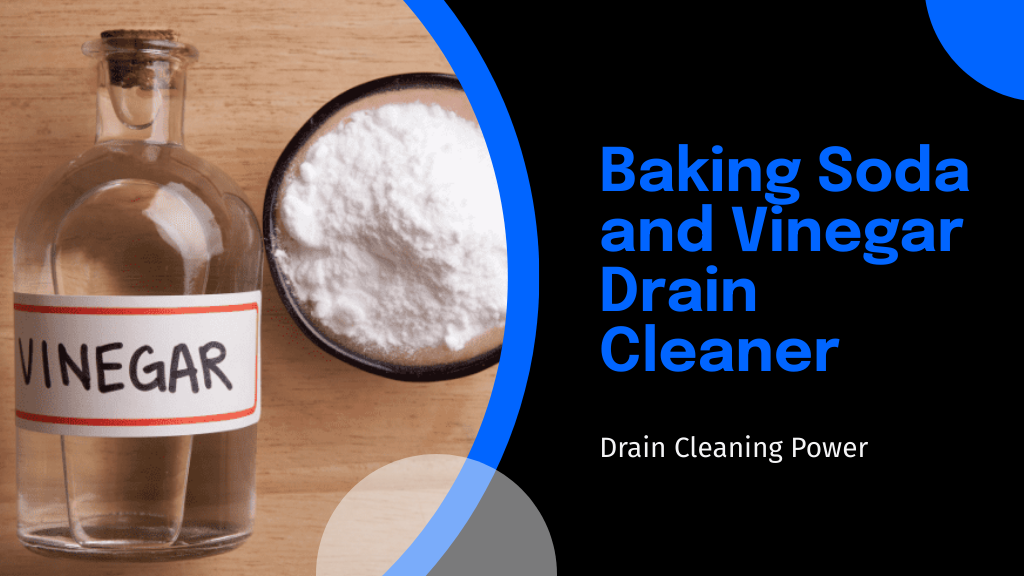
Baking soda and vinegar serve as effective drain cleaners due to their chemical reaction, which produces carbon dioxide gas. This fizzing action helps dislodge debris and breaks down organic matter in your pipes. The alkaline nature of baking soda works well with the acidic properties of vinegar, creating a powerful cleaning agent. While they are non-toxic and eco-friendly, understanding their limitations compared to commercial cleaners is essential. There's more to discover about their effectiveness and application.
The Science Behind the Reaction
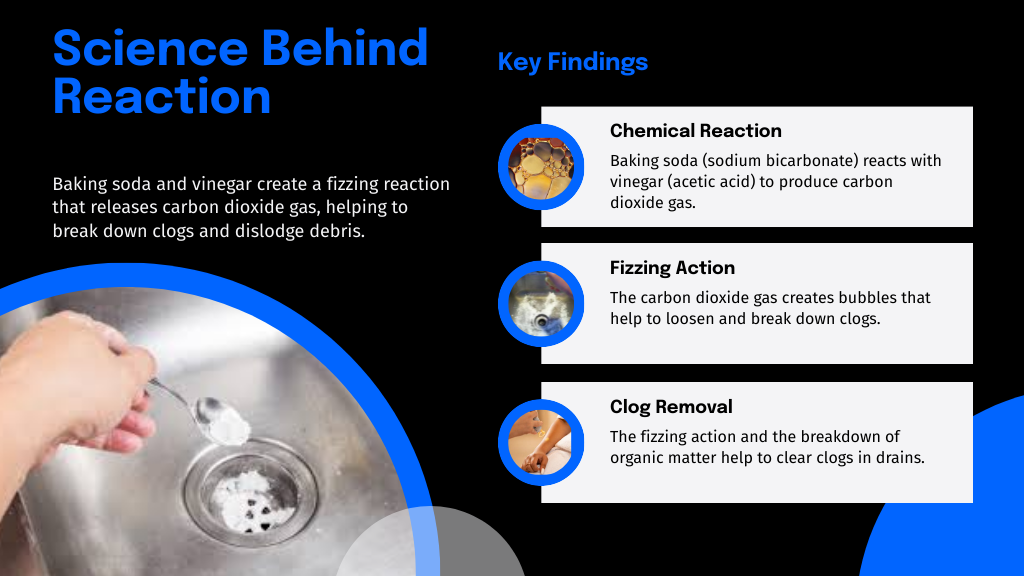
When you combine baking soda and vinegar, a fascinating chemical reaction occurs that can effectively tackle drain clogs. The sodium bicarbonate in baking soda reacts with the acetic acid in vinegar, generating carbon dioxide gas. This fizzing action helps dislodge obstructions, making baking soda and vinegar an effective drain cleaner.
When you're unclogging drains with vinegar and soda, the gas produced can lift debris and break down organic matter that often contributes to blockages. So, does baking soda and vinegar unclog drains? Yes, the reaction can clear minor clogs.
To clean a drain with baking soda and vinegar, simply pour the baking soda first, followed by vinegar, and let it sit. This method illustrates how to unclog a drain using baking soda and vinegar effectively.
How Baking Soda and Vinegar Work Together
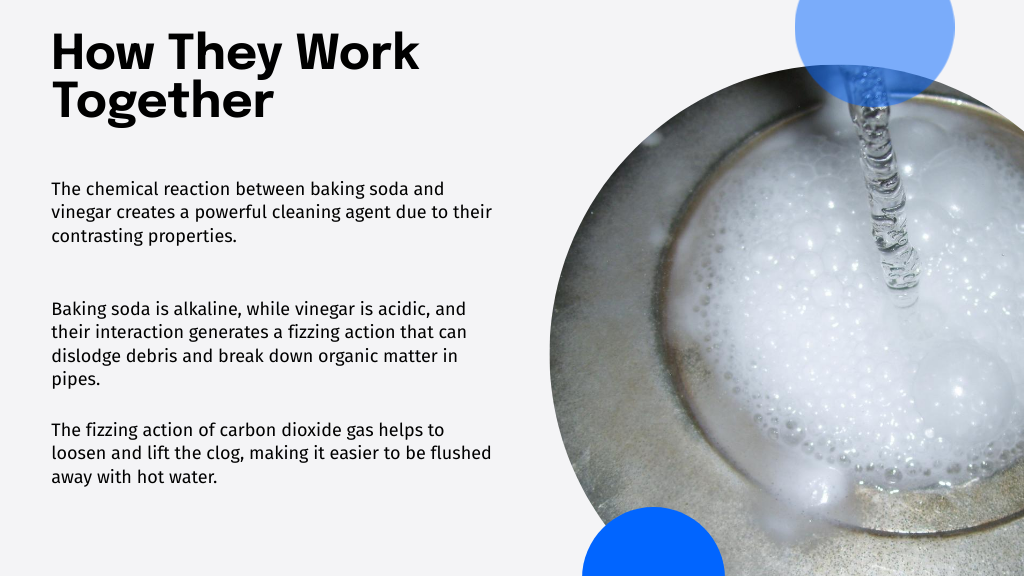
The chemical reaction between baking soda and vinegar not only initiates a vigorous fizzing action but also enhances its effectiveness as a combined cleaning agent. When you use baking soda drain cleaner, it reacts with the acetic acid in vinegar, producing carbon dioxide gas. This gas creates bubbles that help dislodge debris in your pipes.
While cleaning the sink with baking soda and vinegar, the fizzing action penetrates clogs, making it easier to break down organic matter. You might wonder, does vinegar unclog drains? Yes, its acidic properties complement the alkaline nature of baking soda, making unclogging pipes with baking soda and vinegar an effective method.
Ultimately, can baking soda and vinegar unclog a drain? In many cases, it can work wonders.
Comparing Effectiveness to Commercial Drain Cleaners
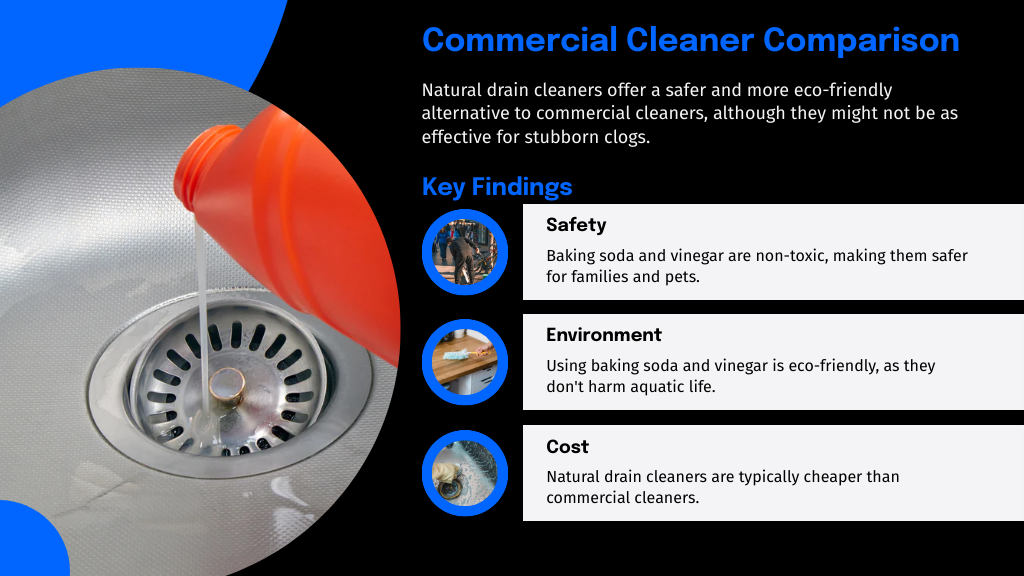
While many homeowners turn to commercial drain cleaners for quick fixes, comparing their effectiveness to the natural combination of baking soda and vinegar reveals significant differences.
Here's how they stack up:
- Safety: Baking soda and vinegar are non-toxic, making them safer for your family and pets compared to harsh chemicals.
- Environment: Using baking soda and vinegar drain solutions is eco-friendly, unlike many commercial cleaners that can harm aquatic life.
- Cost: Cleaning a drain with baking soda is often cheaper than purchasing commercial products.
- Effectiveness: While baking soda and vinegar can unclog a drain, they may not work as quickly as some commercial options.
Ultimately, while baking soda and vinegar can clean drains effectively, they mightn't always outperform commercial drain cleaners in stubborn cases.
Benefits of Using Natural Drain Cleaners
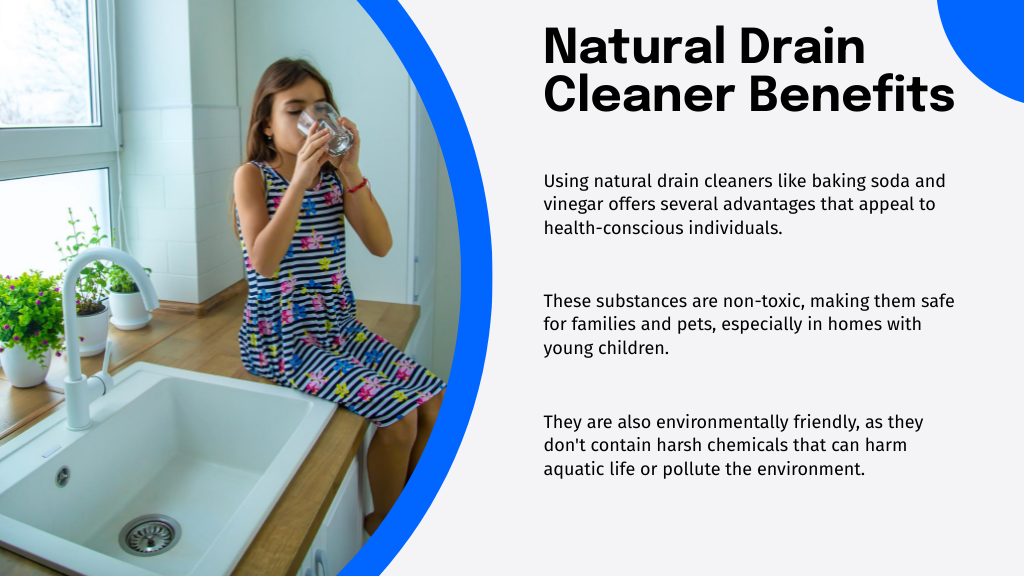
Using natural drain cleaners like baking soda and vinegar offers several advantages that appeal to health-conscious and environmentally aware individuals. First, these substances are non-toxic, making them safe for household use, especially in homes with children and pets.
When you encounter a drain clog, using baking soda to unclog drain lines is an effective method that avoids harsh chemicals. To clean your sink drain with baking soda, simply combine it with vinegar to create a fizzing reaction that helps dislodge debris. This method not only unclogs pipes but also prevents future blockages by breaking down organic matter.
Safety Considerations When Using Baking Soda and Vinegar
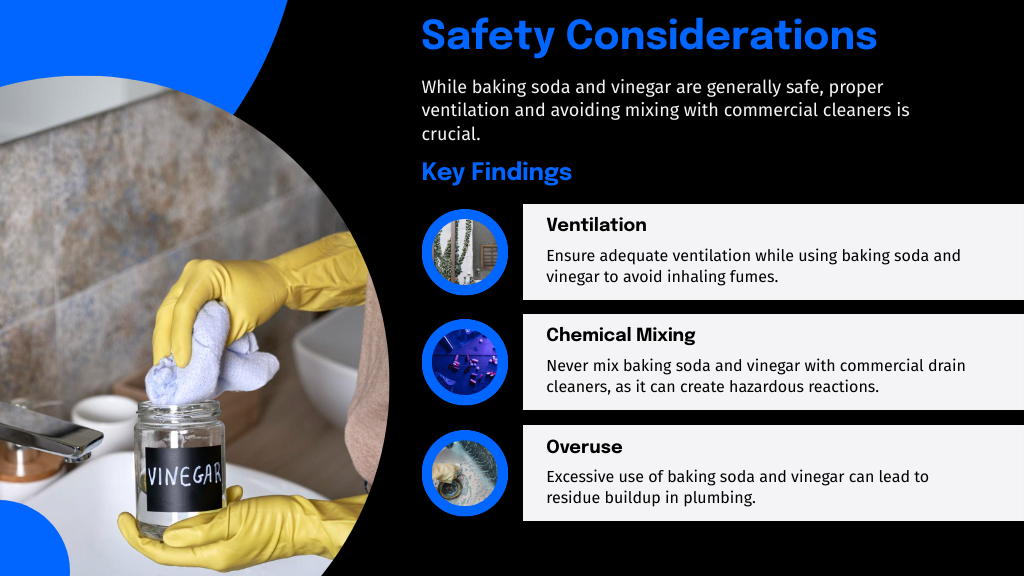
When opting for baking soda and vinegar as natural drain cleaners, it's important to take into account safety aspects. While these substances are generally safe, improper use can lead to issues.
Here are key safety considerations you should keep in mind:
- Ventilation: Make sure the area is well-ventilated to avoid inhaling any fumes from the reaction.
- Mixing with Chemicals: Never combine baking soda and vinegar with commercial drain openers, as this may create hazardous reactions.
- Avoid Overuse: Excessive use of baking soda and vinegar can lead to residue buildup in your plumbing.
- Protective Gear: Wear gloves and goggles to prevent skin or eye irritation when using these substances to unclog your sink with baking soda.
Step-By-Step Guide to Clearing Drains With Baking Soda and Vinegar
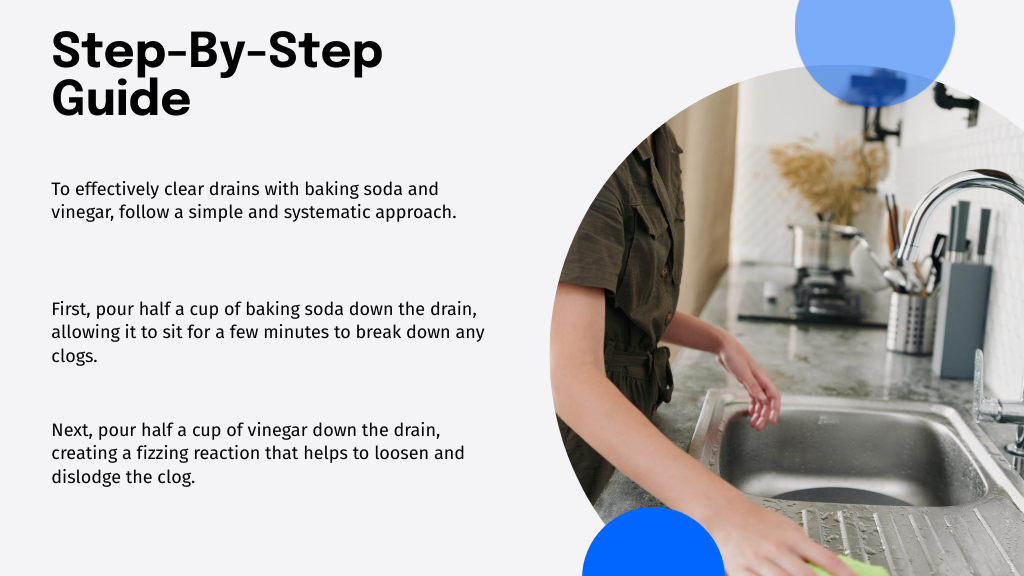
To effectively clear drains with baking soda and vinegar, follow a systematic approach that maximizes their cleaning potential. First, make certain the area is dry by wiping excess water from the sink. Next, pour about half a cup of baking soda down the drain. This will start the initial breakdown of any blockages.
After a few minutes, pour in half a cup of vinegar, which will react with the baking soda to produce fizzing. This reaction helps to unclog the drain with baking soda and vinegar.
Wait 15 minutes before flushing the drain with hot water to remove any remaining debris. For stubborn clogs, consider using a baking powder and vinegar drain cleaner for enhanced effectiveness.
Conclusion

To sum up, using baking soda and vinegar as a drain cleaner is not just eco-friendly; it's an effective method backed by science. Their chemical reaction can break down clogs without the harsh effects of commercial cleaners. Remember, "an ounce of prevention is worth a pound of cure." By regularly maintaining your drains with this natural solution, you can avoid stubborn clogs and keep your plumbing in top shape. Embrace this green approach for a healthier home and environment.


